
The people and brands driving the natural and organic food industry’s enviable growth enjoy passionate support among consumers and peers. But it’s really the ingredients, rather than the product innovations, at the foundation of the industry’s bright parade of functional beverages, plant-based meats, novel chips, probiotic powders and more. If not for high-integrity ingredients and transparent supply chains, the natural and organic products industry would not exist.
The proliferation of this wealth of natural and organic products also depends on organizations such as the Non-GMO Project and the United States Department of Agriculture. Organizations’ investments in third-party certifications, seals and verification standards offer consumers the transparency that is essential for assessing ingredient and product integrity.
While a diversity of standards inform natural and organic food consumer choices, a categorical trio stands apart for their industry might: organic, non-GMO and the rising newcomer, regenerative agriculture.
Prior to the launch of The Non-GMO Project in 2007, consumer awareness about genetically modified organisms was nearly imperceptible. The Project started a movement, one fixed on educating about and advocating against the 10 crops that are genetically modified in the United States, including corn, soybeans, sugar beets, cotton and canola.
But a new target has emerged, and the Project is directing considerable resources and attention toward it: novel food ingredients that are created through processes such as precision fermentation. These ingredients are on the rise among some CPG brands for their use in plant-based meat and dairy products, but the Project has strong concerns about potential negative effects.
“We’re calling them the new GMOs, or GMO 2.0,” says Jade Vantreese, communications director for the Project. “We are advocates for consumer choice, and if [brands] make these products, [they should] label the GMOs and let consumers decide if they want to continue eating them. It’s difficult to say what [the ingredients] are, and what’s inside the food. We are for labeling and labeling transparency.”
Some of these processes, which essentially hatch animal proteins in labs, have been around for quite a while. Longstanding applications to the food industry include the manufacture of rennet used in cheese making. But volumes of these ingredients in foods like rennet represent tiny slivers of the overall ingredient list; in some of the new plant-based products, the volume percentage may reach much higher.
As little public research has been done evaluating the health effects of consuming large amounts of these products, the Project “has a ton of questions about how our bodies react to them, how we digest them, the nutritional content and overall process involved in making them,” says Vantreese.
Until these products and their impacts are clarified, the Project anticipates focusing on these ingredients, including what happens to the waste generated in their production.
Meanwhile, the organization is set to publish data through a project with SPINS that reveals that Non-GMO Project Verified frozen plant-based meats experienced explosive 70% growth during 2021, while alternative meats missing the Non-GMO Project’s butterfly seal saw only 10% growth.
“There’s so much innovation going on,” she says. “Our research shows that people are seeking out the butterfly in the plant-based space and other sectors as well.”
As negotiations around the 2023 Farm Bill heat up, a collaboration between the Project, Regenerate America and Kiss the Ground plans to invest significant resources toward advocating for regenerative agricultural practices that move away from GMOs and monocrops.
Embracing Non-GMO certification represents the “first step” toward going organic, says Vantreese.
“The more acreage we can transition away from GMO crops means the start to more organic, more regenerative, more social justice and economic equality. It’s a starting block.”
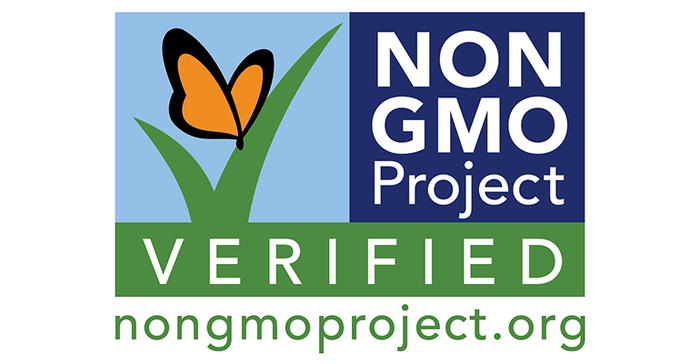
Non-GMO Project Verified: Building on consumer trust
Just over half of consumers have heard of the claim non-GMO and know what it means, according to a recent survey by New Hope Network (see Changing Consumer section, page 9). Still, brands often use it on packaging with little to no explanation of what it stands for. Brands that not only get certified, but also put their Non-GMO Project Verified seals on the front of pack, build trust with consumers and increase recognition for this ingredient standard.
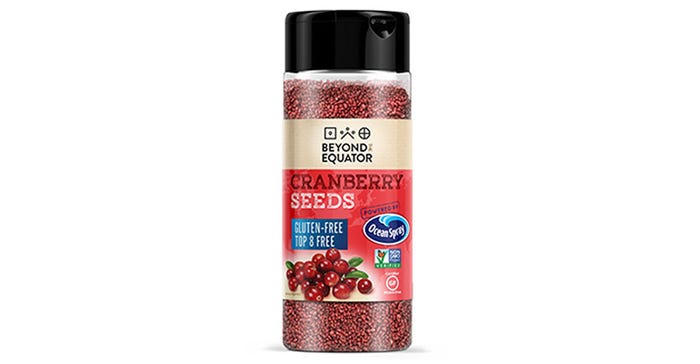
Beyond the Equator and Ocean Spray Cranberry Seeds
Beyond the Equator was founded by a group of farmers on a mission to increase the use of underutilized, nutrient-dense seeds like flax, sunflower and pumpkin. Their new product is produced in collaboration with Ocean Spray and made from upcycled cranberry seeds that come in this easy-to-use shaker. These neutral-tasting, Certified Gluten-Free, Non-GMO Project Verified seeds can be sprinkled on any number of foods for a colorful dose of dietary fiber. SRP: $8.99
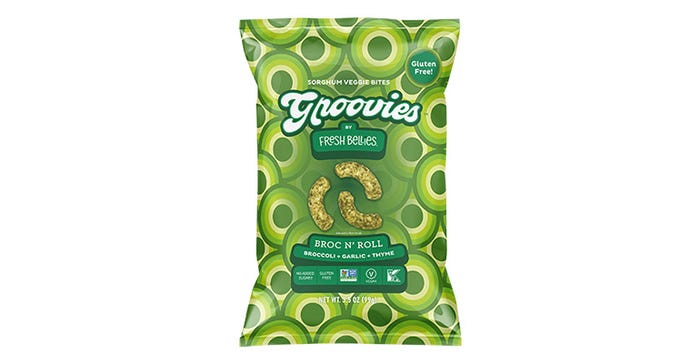
Fresh Bellies Groovies Broc n’ Roll Sorghum Veggie Bites
Ecuadorian-American mom Saskia Sorrosa founded Fresh Bellies to help growing kids expand their palates into savory, diverse flavors. Groovies offer the wholesome flavors of broccoli, garlic, and thyme combined with sorghum, an ancient, drought-resistant whole grain that sequesters carbon into the soil. With no added sugar and just a handful of simple, real food ingredients, this product is a totally groovy snack for kids and adults alike! SRP: $11.99/2-pack
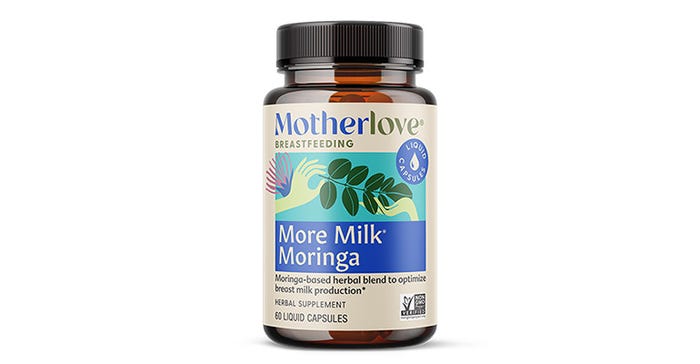
Motherlove More Milk Moringa
Motherlove is a woman-owned, Certified B-Corporation on a mission to support Mother Earth and all mothers, in general. Crafted in the brand’s solar powered and zero waste facility, More Milk Moringa is formulated to optimize breast milk supply and support moms during this new stage in life. A convenient vegan liquid capsule makes taking these functional ingredients (moringa, blessed thistle, nettle and fennel) a breeze. SRP: $26.99/60-count
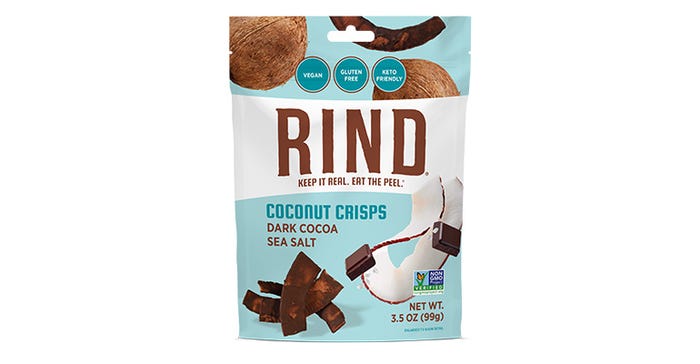
Rind Dark Cocoa and Sea Salt Coconut Crisps
These indulgent snacks are made with only four simple ingredients: dried coconut, coconut sugar, dark cocoa powder and a dash of sea salt. They are also made in keeping with the brand’s mission to reduce food waste by upcycling “ugly” produce into nutritious and delicious fruit-forward snacks. Devour them on their own or as a topper to any dessert or snack, these crisps have no added sugar and have a commendable 7 grams of fiber per serving. SRP: $5.99
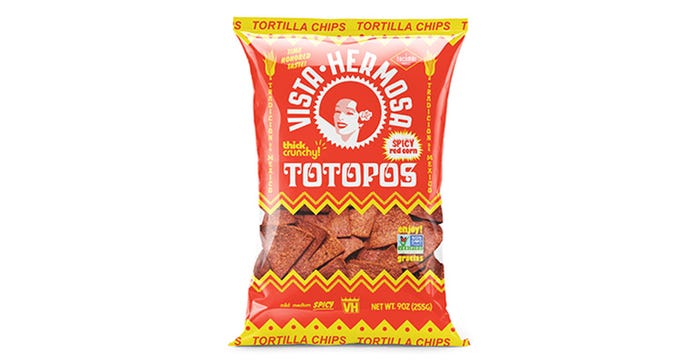
Vista Hermosa Spicy Red Corn Totopos
Vista Hermosa follows the true Mexican tradition of turning real tortillas into chips. The brand’s Non-GMO Project Verified corn is grown by a co-op of farmers, supporting a responsible, equitable and sustainable supply chain. In partnership with parent company Tacombi, the brand prepares and distributes authentic Mexican meals to low-income NYC communities. Vista Hermosa products are not only tasty, but also help support a sustainable, equitable future for all. SRP: $5.99
About the Author(s)
You May Also Like
.png?width=700&auto=webp&quality=80&disable=upscale)




